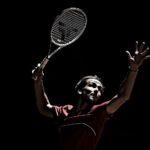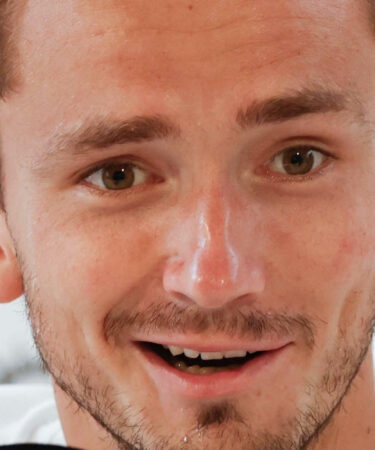Gilles Cervara on the ATP’s authorisation of coaching: “I support the new rule, but it is not because the coach speaks that the player is better”
The coach of world No 1 Daniil Medvedev tells Tennis Majors that he is in favour of the ATP’s decision to authorise off-court coaching, for the sake of consistency
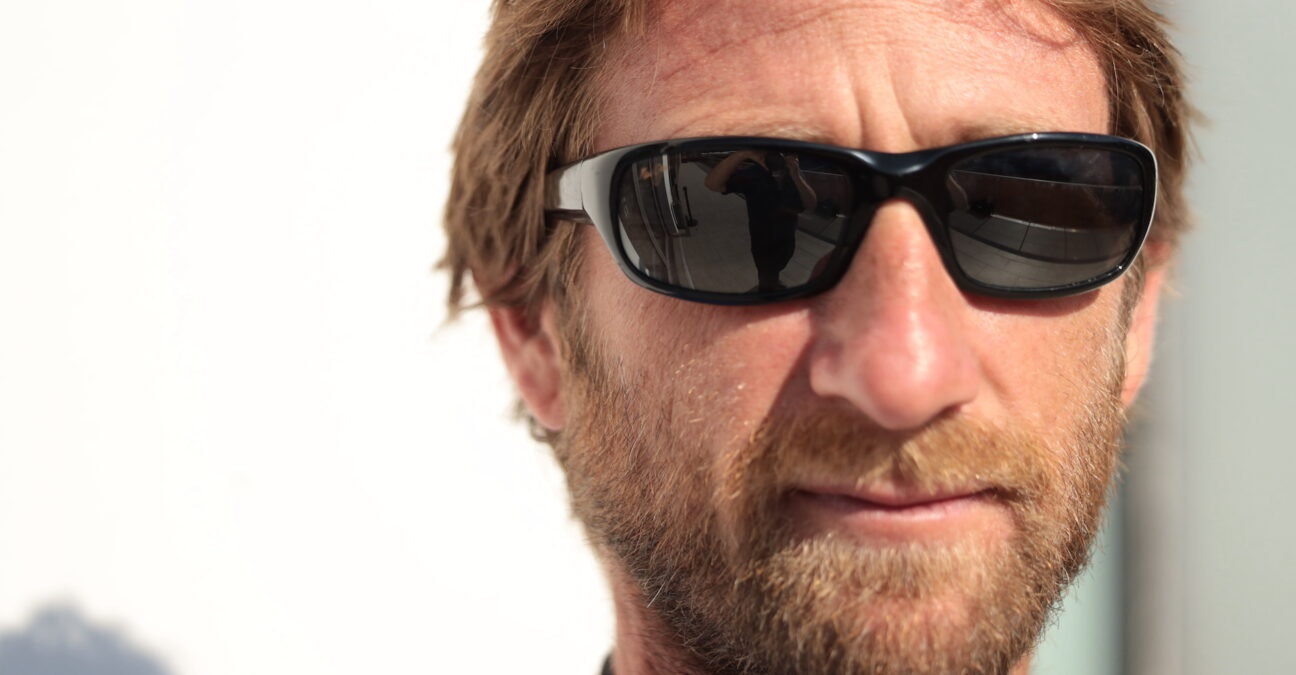 Gilles Cervara
Gilles Cervara
Gilles, how do you welcome the ATP's decision to authorise off-court coaching on an experimental basis, that is to say the right for a coach to help his player during the match by gestures or word?
I am rather in favour of it, especially to break this hypocrisy and the lack of consistency on the penalties. Sometimes the referee does not dare, then he dares the next day for less conspicuous coaching. Some coaches get fined for three “come ons” during the match. It was not consistent, not framed.
Do you think this is something that coaches and players expected?
Yes, there were expectations. If I understood things correctly, the decision was the result of a consultation of coaches. I was consulted by Daniel Vallverdu, who had been invested for years with a desire to make things happen. I indicated that we had to stop with the hypocrisy. Coaches coaching, they all have words and gestures. From now on, we just authorise what already exists, we validate the practice.
What do you think will change?
Fewer fines, for a start. And…not really much else – because the rule will not allow anyone to have a real exchange as we do during training. It will depend on the distance between the box and the player, if the player can hear the coach or not, and then on the relevancy of the coach’s words. Afterwards, I’m sure there will be something for everyone. In coaching, many things depend on the coach-player relationship. Tennis is such a cerebral sport that, for some players, a talking coach is more annoying than anything else. It has happened to me to see the coach of Daniil’s opponent coaching and to say to myself: “Keep going, keep going, it has the opposite effect, it suits me.” I’m not pretending it’s the common situation.
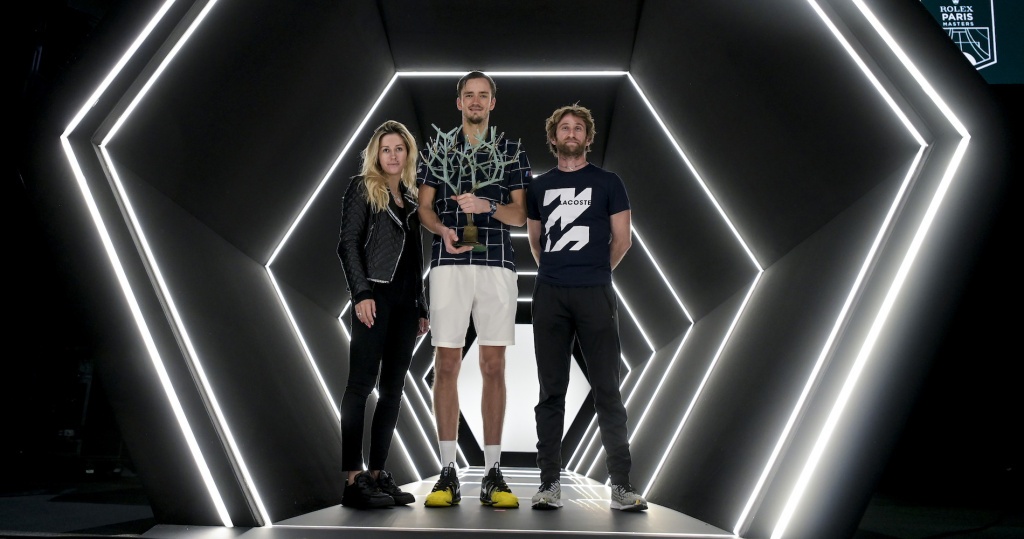
When we talk about off-court coaching, we are talking about verbal and non-verbal communication. How spontaneous or highly prepared is it?
Both exist. And again, it’s not always possible. On big stadiums, for example, the boxes are far away and the coaches are inaudible. Otherwise, the context of a match is such that you must necessarily prepare codes, gestures, simple things. It’s about conveying a message in a second, you can only do it by preparing a minimum. Besides that, there will always be moments that only correspond to the reality of the match and that are improvised.
What do you think of the main counter-argument of the people who are opposed to this decision?
It doesn’t resonate too much with me. All individual sports are sports where athletes have to find solutions and where coaches can coach, I don’t see why tennis would be any different. Because it’s tennis, the coach could not slip a message when his player is four metres from him? I can’t figure it out.
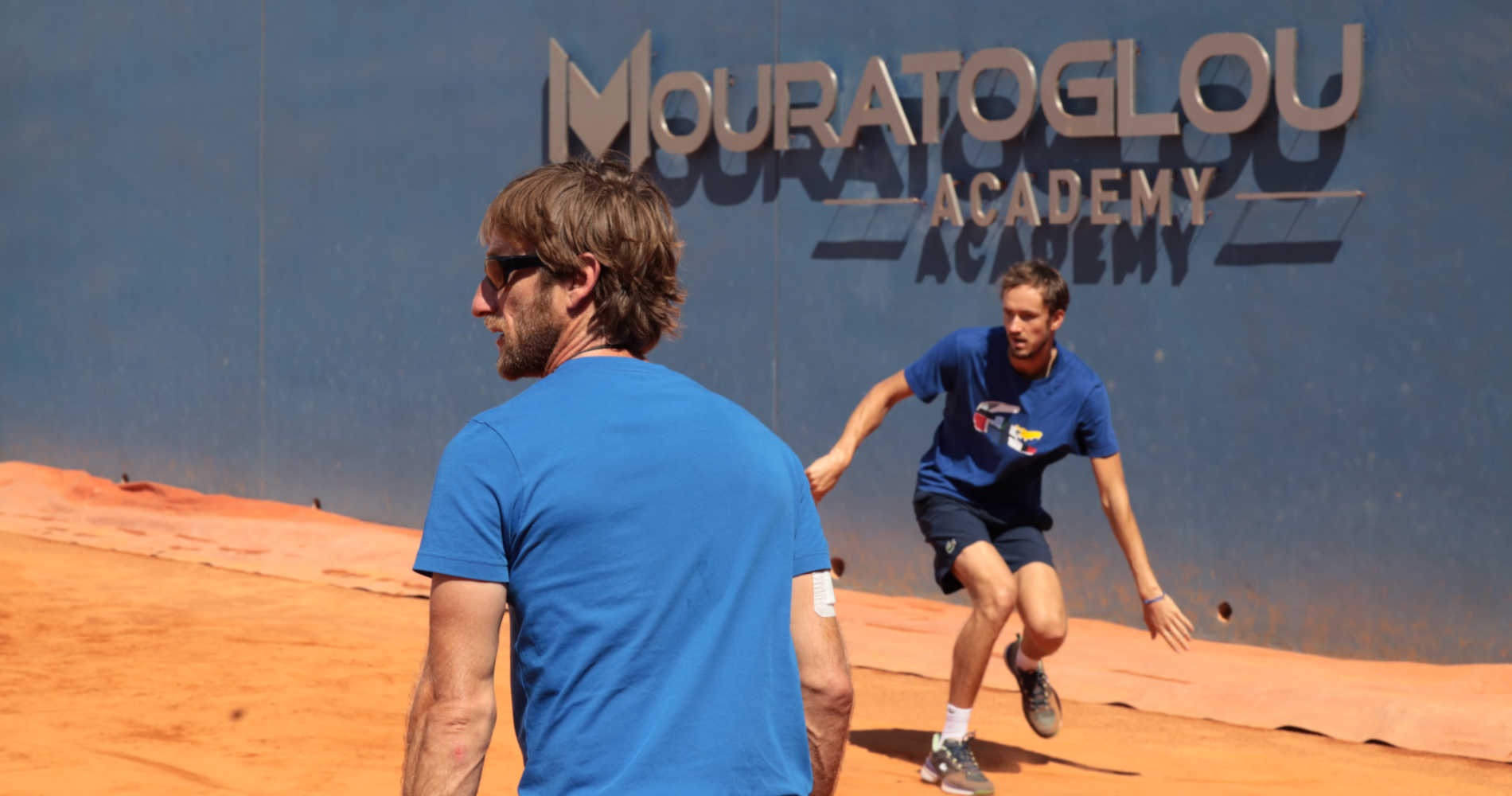
Who takes the initiative for coaching?
Mainly it should be the coach, now reinforced with an official authorisation. But it can come also from the player, feeling free to find support from the coach. Mainly, the coach will have to monitor if that’s good for his player and if the player really need it. I’m not sure that all coaches will all ask themselves the question. Just because the coach talks doesn’t mean the player is better. The coach still needs to give the right information, at the right time and in the right way. It is an art, sometimes close to tightrope walking. On my side, I’m not going to do more, I’m going to continue to do things to match what the player can receive.
All individual sports are sports where athletes have to find solutions and where coaches can coach, I don’t see why tennis would be any different. Because it’s tennis, the coach could not slip a message when his player is four metres from him?
— Gilles Cervara
What is the maximum level of information that a coach can convey?
For me, very little. The line is sometimes blurred between coaching and encouragement. But encouragement carries energy, so it is a form of coaching. I can give the example of the ATP Cup and my experience with Russia. And yet, at the ATP Cup, we have 1 minute 30 to change sides. But that’s very little, especially since you can’t spend your time talking. The players need time for themselves, to process the information, it requires a calm mental space reserved for them. If you talk all the time, it tires and it disturbs. I’m not even talking about Daniil who is an extreme case, but I remember trying to contain Roman Safiullin’s coach who wanted to pass on a lot more information than the player could handle. This is a very fine dosage.
Have you, Daniil or you, been often sanctioned for coaching?
No. Except once in Cincinnati qualifications, four years ago. The referee called it coaching but it was closest to an argument like Halle’s final this weekend. But it was on a small court. So I was more active, in the sense that I could have more response in this context, and we were more open because we weren’t on a big stadium, where you don’t want to show up yourself shouting. That was more our behaviour that was targeted than pure coaching.
When you leave the court, like in Melbourne in 2021, Halle this weekend and Cincinnati, ages ago, is coaching the origin of the argument ?
No, it’s about Daniil losing control. He loses his nerves for a little thing, or because the opponent is too good, he can’t get himself quiet and fire is just spreading. When I leave the court there, it’s because it’s the only solution to make things better. And also because I can’t accept that.




